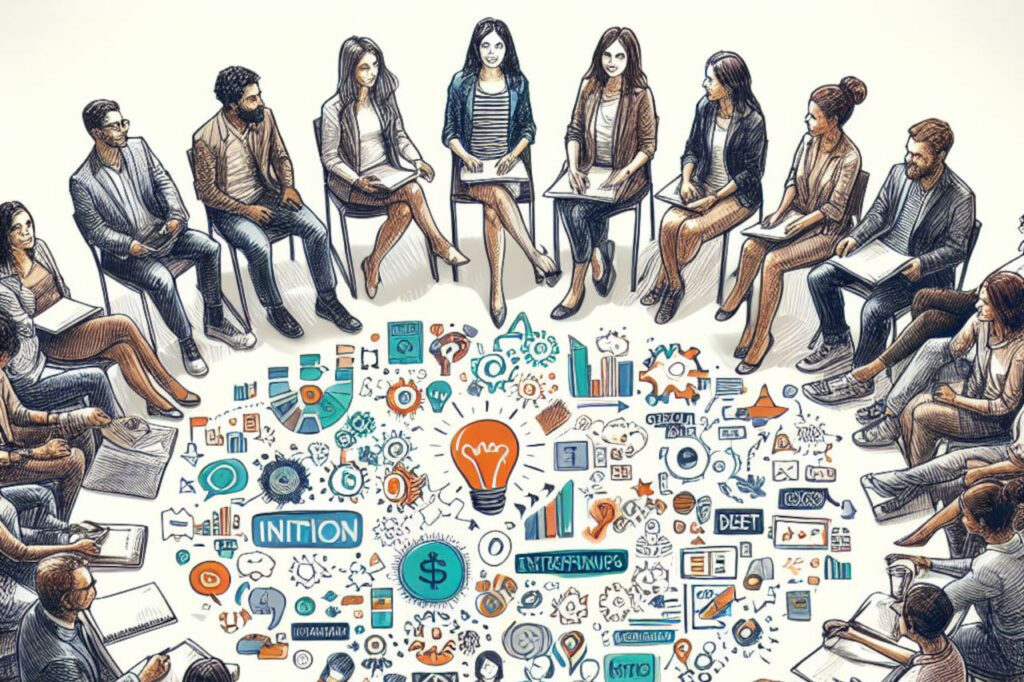Entrepreneurial support, still to be democratized
Howmany entrepreneurs in France actually benefit from mentoring? TV shows such as "Qui veut être mon associé ?" (Who wants to be my partner?) highlight certain aspects of mentoring and sometimes give the impression that it is the preserve of successful businessmen and women, and only available to those with projects offering high growth potential.
Karim Messeghem, University of Montpellier; Constance Banc, University of Montpellier; Justine Valette, University of Montpellier and Sophie Casanova, University of Montpellier

When it comes to the entrepreneurial ecosystem, France does not seem to be in such a bad position globally. According tothe Global Entrepreneurship Monitorstudy, it currently ranksfifthamong the richest countries in terms of government promotion and support for entrepreneurship. But what about in reality? How many people actually benefit from this support?
Entrepreneurialsupport aims to create conditions conducive to the emergence and success of entrepreneurial projects. It draws on a variety of methods, such as mentoring, or structures, such as accelerators. More specifically, it can be defined as a process organized by a third party, which is long-term and enables a project leader or entrepreneur to benefit from a learning dynamic, access to resources, networking, services, and decision-making support.

Every Monday, whether you are a manager looking for strategies or an employee wondering about the choices made by your superiors, receive the keys to professional research and advice from our experts in our themed newsletter "Entreprise(s)" (Business(es)) in your inbox.
France has seen an unprecedented increase in the number of entrepreneurs over the past decade. A recent study by the Entrepreneurial Ecosystem Lab at Labex Entreprendre attempted to objectively assess the reality of the support available to them.
Less than a quarter of entrepreneurs supported
We drew on data collected as part of the Global Entrepreneurship Monitor in 2023, adding questions about support. The study focused on entrepreneurs who could be described as "emerging," i.e., those who had started a business in the three and a half years prior to the survey. They represent 10.8% of the population aged 18 to 64.
The results show that 23.5% of emerging entrepreneurs receive support. This rate is very close to that measured in theFrench Entrepreneurship Index in 2023. In this study, the proportion of project leaders who "sought support and obtained it" stands at 22%. In other words, less than a quarter of emerging entrepreneurs currently receive support.
Entrepreneurial support can take many forms. Emerging entrepreneurs mainly highlight the benefits of decision-making assistance and learning dynamics through advice (80%), critical feedback (63%), strategic information (51%), and moral support (47%). Networking is a major function that benefits a small majority of entrepreneurs receiving support (51%). However, only 29% of these entrepreneurs have had access to financial support. Finally, accommodation is a relatively underdeveloped practice, with only 18% having benefited from it.
There is also a wide variety of entrepreneurial support structures. The major players are consular bodies, such as chambers of commerce and industry. 29% of emerging entrepreneurs have benefited mainly from this support. Structures such as incubators, business nurseries, and third places attract 21% of entrepreneurs, compared to only 13% for large networks (Adie, BGE, CRESS, France Active, France Angels, Initiative France, Réseau entreprendre, Pépite, etc.). Finally, integration and return-to-work structures (Apec, Pôle emploi) support 18% of emerging entrepreneurs.
Support to be redirected to those who need it?
Looking at the sociodemographic characteristics of emerging entrepreneurs, the proportion of female entrepreneurs is lower (40.7%). However, the support rate is 25.3% for female entrepreneurs, compared to 22.3% for male entrepreneurs.
The age group that most frequently uses support services is 25-34 year olds. The support rate (31%) is very high compared to the rest of the population. This result should be viewed in the context of the younger age of entrepreneurs in France and the strong interest of this age group in support services. Older entrepreneurs tend to make less use of support services, with only one in five seeking assistance. Their greater experience and better access to professional networks may explain this lower level of interest.
Finally, educational attainment appears to be a determining factor in the use of support services. Entrepreneurs with a high level of education tend to rely more on support services. For those with a high school diploma or lower, this rate is only 17.8%. This result raises questions about the ability of support providers to better target this audience, which, paradoxically, would seem to be the one most in need.
With limited support, which was sometimes poorly targeted, stakeholders such as the Public Investment Bank (BPI) became aware of these discrepancies and proposed coordinating the main players involved in entrepreneurial support. Cap Créa now brings together 27 stakeholders committed to entrepreneurship. The challenge is to make the support ecosystem even more inclusive for those with fewer qualifications and older people.
This research, funded by Labex Entreprendre, receives government support managed by the French National Research Agency (ANR) under the Investissements d'Avenir program. The ANR funds project-based research in France. Its mission is to support and promote the development of fundamental and applied research in all disciplines, and to strengthen the dialogue between science and society. For more information, visit theANR website.
Karim Messeghem, Associate Professor, University of Montpellier; Constance Banc, Lecturer-Researcher, University of Montpellier; Justine Valette, Senior Lecturer in Management Sciences, University of Montpellier and Sophie Casanova, Senior Lecturer in Entrepreneurship, University of Montpellier
This article is republished from The Conversation under a Creative Commons license. Readthe original article.